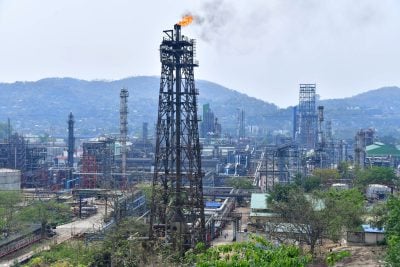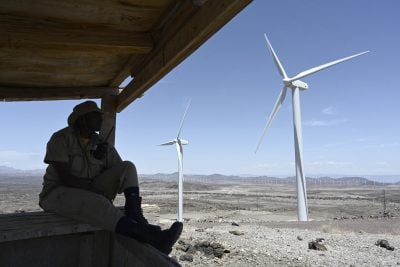When Australian firm Paladin began mining for uranium in largely agriculture-based Malawi, hopes for an economic upturn were raised among the local communities. Now relations have soured and the government finds itself caught in the crossfire. Lameck Masina reports.
The opening of Kayelekera Uranium Mine (KUM) in 2008, in Malawi’s northern lakeshore district of Karonga, by an Australian Firm Paladin (Africa), raised a lot of expectations in an agro-based economy which has long been relying on tobacco as its main foreign exchange earner.
The 10-year, $200m mining project was also expected to expand the country’s economy by boosting GDP by 5% and adding 20% to the value of Malawi’s exports, overtaking sugar to become the second-biggest foreign exchange earner after tobacco. In addition, the officials of Paladin, which was licensed to mine a deposit of some 11,000 tons during its period of operation, promised to transform the underdeveloped Kayelekera area into a prosperous town and create jobs for 800 locals surrounding the area.
“KUM will employ a permanent workforce of 350 personnel, of whom around 300 will be Malawians”, reads a posting on Paladin (Africa)’s website. The company also said it had allocated $8.2m towards upgrading the water supply for the surrounding communities as part of its social responsibility.
Five years down the line, however, there has been a major falling out between the mine operators and the local community. Critics say little or no benefit has trickled down. The discontented business community around the project in Karonga had planned to stage protests in March demanding the closure of the uranium mine which they claimed has failed to live up to the promises.
The planned demonstrations, which were halted after the district council’s authorities refused to give the demonstrators permission to go ahead for fear of “breaching the country’s peaceful atmosphere”, were, say some of the local community, a final resort after the failure by government authorities to respond to the concerns they raised in their petition dated 26th January 2013. A spokesperson of the organising committee for the planned demonstrations, Wavisanga Silungwe, told African Business that for many years Malawians, especially local communities surrounding the project areas, ”have been taken for granted”, saying only 20% of the local business community benefit from Kayelekera Uranium Mine while 80% of business opportunities are given to foreign business outlets.
“You know it is a social obligation of any company that comes within the community to have the social responsibility to engage the community, but what is happening with Paladin is they are engaging foreign businesses to supply food items at the mine at the expense of the locals. In terms of transportation they get foreign trucks that carry sulphur and lime: why not use Malawian transporters?”
He said another problem is that people surrounding the mine drink water which may be contaminated by uranium. The Sere River which passes close to the uranium mine is an important source of water for the local community. “We are worried that we might be risking our lives by drinking water with uranium particles. We want to know how safe the water is,” said Silungwe.
Too many loopholes
Legal experts have also added their voice to these concerns and are calling for the renegotiation of the Mining Development Agreement which the company signed with the Malawi government, arguing that the nature of the agreement left a lot to be desired as it has loopholes which are not only largely unclear but also disadvantageous to Malawians. A private lawyer, Kamuzu Chibambo, told a news conference in the country’s commercial capital Blantyre in March that there is a strong need for the government to renegotiate the agreement, which he said was of a type he had never come across in his 31 years as practising lawyer. He also faulted the rights under which the government granted exclusive rights to Paladin to mortgage all uranium and ore found on and under Kayerekera or Mchina mine in Nthalire. He likened the agreement to a tenant of a house having power to mortgage the landlord’s house to secure a personal loan.
“How could the government of Malawi give Paladin such a blank cheque? Malawians may soon discover they have nothing at Kayerekera because Paladin’s creditor has taken over the entire mine. Paladin’s creditors, like EDF of Canada, could claim full right to our uranium in the event Paladin for some reason fails to supply uranium from 2019–2024. This is extremely reckless on the part of Malawi government,” said Chibambo.
He says the right to mortgage all uranium deposits at Kayerekera mine is a flagrant violation of the Malawi Constitution “as the contract terribly fails to protect and serve the interests of the people of Malawi. Government has no right to grant such a wild and reckless right”.
However, Paladin Africa’s General Manager for International Affairs Greg Walker told the local media that the company cannot renegotiate with the Malawi government until the expiry of the 10-year period of the current contract, arguing the company invested its money in the project based on terms agreed in the current contract.
“We will not renegotiate the agreement. One of the biggest risks for companies investing in Africa is that you come in and spend your money and once you have spent, government changes the rules. One of the things included in the development agreement is that the government will take no action that will seriously change the financial aspects of this project for a period of 10 years. And people think that is terribly unreasonable. But it is not,” said Walker.
High risk investment
Walker said Kayelekera was a high-risk investment considering the volatile prices of uranium on the international market and also because Malawi has no track record in terms of handling such a high-scale foreign investment. He, however, said even if the agreement was to be renegotiated, Malawians should not think that only things demanded by Malawi would be changed in the contract:“The government has said there are some things in the development agreement it doesn’t like. But there are also some things in the development agreement which we, as Paladin don’t like because we didn’t anticipate some of the things that have turned up after mining started.”
However Minister of Mining John Bande said the country’s mining sector is facing challenges largely because of lack of proper legislation. The Mines and Minerals Act, which among others, stipulates that communities where the mines are based should also benefit economically, is still in draft form.
According to the Ministry of Mines, the mining policy is expected to take effect in early 2014, which will ensure that all investors in the sector are working in accordance with the laws of the land. “Once we have this policy we will revisit all the mining ventures across the country to ensure they are implementing it,” said Bande.
In her recent state of the nation address, President Joyce Banda said her government will review laws governing the mining sector as a measure designed to create an enabling environment for conducive, transparent and accountable mining regime in the country.
Paladin Energy has 85% ownership of Kayelekera mine with a 15% stake held by the government of Malawi. In Namibia, Paladin Energy has 100% ownership of Langer Heinrich mine.
Want to continue reading? Subscribe today.
You've read all your free articles for this month! Subscribe now to enjoy full access to our content.
Digital Monthly
£8.00 / month
Receive full unlimited access to our articles, opinions, podcasts and more.
Digital Yearly
£70.00 / year
Our best value offer - save £26 and gain access to all of our digital content for an entire year!

 Sign in with Google
Sign in with Google 




